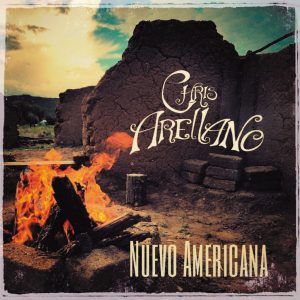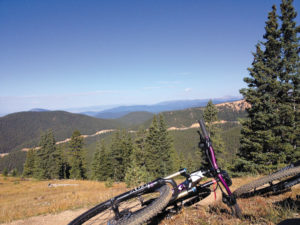By Peter Anderson
I tell her I need to replace the glass top of an electric range. I tell her how the bear broke into our house, stood on top of the stove hoping to find some goodies in a nearby cabinet, and fell through the glass instead. “I understand,” says the woman on the customer hotline in Tennessee. “We live in the mountains, too.”
Whether in the Sangres or the Smokies, mountain people get it: bear encounters come with the territory. You can take all the usual precautions, but bears don’t always play by the rules. Encounters may be closer than we would like. Under such circumstances, I know people who shoot, make bear sausage, and shut up. I have also heard of a woman, who chased a bear out her back door, hollering and throwing bedroom slippers, after she found him eating a freshly-baked pie at her kitchen table. A few years back, a neighbor found a bear that had broken into his car but could not get out. The bear had locked himself in and did not like that trapped-in-a-small-space feeling. What do you do when an agitated bear is shredding the interior of your new car? My neighbor chose to liberate him from a distance, launching a boulder through his own windshield. Hello, Allstate?
[InContentAdTwo] Every year about this time I hear of such encounters. Though they may stir up primal fears, especially for urban visitors, we get used to stories like this. But other encounters, like the one I heard while waiting in line to get coffee the other day, are less common and more chilling. A young black woman, who I met shortly after she moved here less than a year ago with her grandfather, told me she had recently moved into a new rental, a quieter place in the trees, further away from the road. She felt comfortable and safe there, until something shattered her window one night. It was not a bear.
I don’t know why someone threw a rock through her window. Although, Crestone is more open to newcomers than many, if not most, towns, and although we are an international community, with representatives from many of the world’s great contemplative traditions, we are also very white, whiter than most towns in the San Luis Valley. Maybe someone wants to keep it that way. Maybe someone is scared of people who look different than they do. Maybe someone carries a deep grudge toward one of our new neighbors for some other reason. Or maybe someone is just a low-life racist. I don’t know. I do know that this is not the kind of story I am used to hearing in this town. May we stand in support of our new neighbors and keep it that way.
Peter Anderson writes about geographical and cultural edges in this column and in a new collection of flash prose and prose poems called Heading Home: Field Notes published by Conundrum Press (conundrum-press.com)


